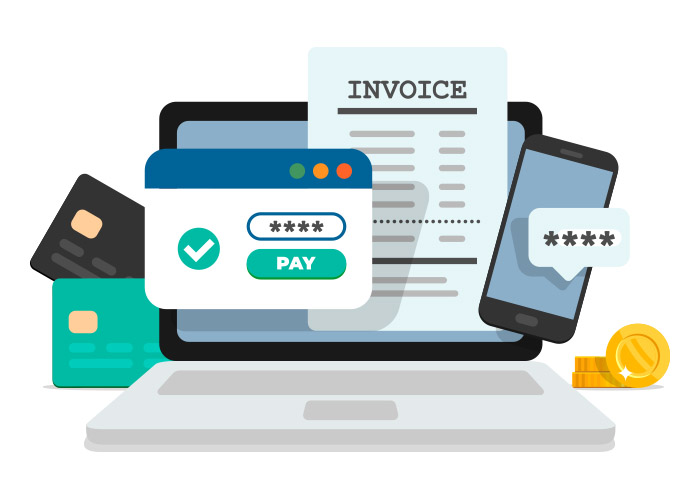This is especially useful for suppliers who often work with the same customers and many know that invoices need to be approved and processed. Transaction records on the blockchain are always accessible and verifiable.
Know Your Bill
With Know Your Invoice, InvoiceMate simplifies banks’ time-consuming due diligence processes. You can independently verify the integrity and authenticity of the invoices provided as collateral. Not only lenders, but all business partners, including borrowers themselves, business partners, investors and independent auditors, benefit from know your invoice.
According to a World Bank report, Pakistan’s domestic credit to the private sector reached 15.04% of GDP in 2020. Significantly lower than regional economies and emerging markets. One of the main reasons for the underdeveloped credit market is the high proportion of informal and informal economic sectors, especially small and medium enterprises.
Banks and other financial institutions are reluctant to extend credit lines to small businesses due to the lack of collection guarantees. KYC (Know Your Customer) is, as the name suggests, about knowing your customer. As with most business matters, the company is the customer, so the terms KYC or KYB are used interchangeably and interchangeably.
So what does it mean to know your customer? KYC is a very important factor or practice for the financial industry in general and for the financial industry in particular. Once payment of these bills has been received, the lender’s account will be deleted. All these factors have made lending to SMEs more viable than in the past, but still not enough. Another reason for the weak lending market is high public sector borrowing in Pakistan. Banks always want to extend credit lines to the public sector because it is safer than the private sector.
Financing by Invoice
Basically, it’s about knowing all the details you need about your customer/organization. Like any other industry, the financial industry is still in its early stages. The potential and growth are very promising, but there is still much work to be done.
Invoice financing is a form of short-term borrowing in which the borrower finances outstanding invoices (debtors).
The lender immediately issues a portion of the receivable amount to the borrower. This increases productivity as the borrower maintains reasonable cash flow for the amount. Banks and other financial institutions are more likely to help the public sector because of their regulatory guarantees.
Like other Muslim countries, many people in Pakistan are reluctant to get involved in fundraising because Islamic Sharia prohibits it. That is why many are looking only for Shariah compliant financing solutions.
MateSol’s InvoiceMate is the world’s first complete invoice management system on blockchain.The entire billing process from procurement to payment is transparently recorded on the blockchain. This record is immutable and verifiable by all parties at any time. Banks and other financial institutions can easily verify the authenticity of invoices and related records, increasing the availability of invoice financing for businesses. In this way, the company can overcome liquidity problems and maximize its potential.
In this type of borrowing, the company uses the promissory note as collateral and immediately receives a percentage of the outstanding amount. At the end of the billing period, the amount borrowed, including the agreed percentage, will be returned to the Lender as interest/service fees.
The lender collects the amount from the customer when it is due. With this type of financing, the company receives an agreed amount up front and the lender is responsible for collecting the invoice. After collecting the amount owed against the bill, the lender withholds the loan amount and incidental fees and transfers the rest to the company.
The invoice financing market for MSMEs, especially their SMEs, remains untapped and largely untouched. SMEs make up 90% of the world’s businesses and employ 50% of the world’s workforce.
In emerging markets, SMEs make up more than 40% of this total. At the same time, seven-tenths of jobs are created by SMEs in emerging markets. All these figures demonstrate the importance of SMEs in the global economy in general and in emerging markets in particular.
